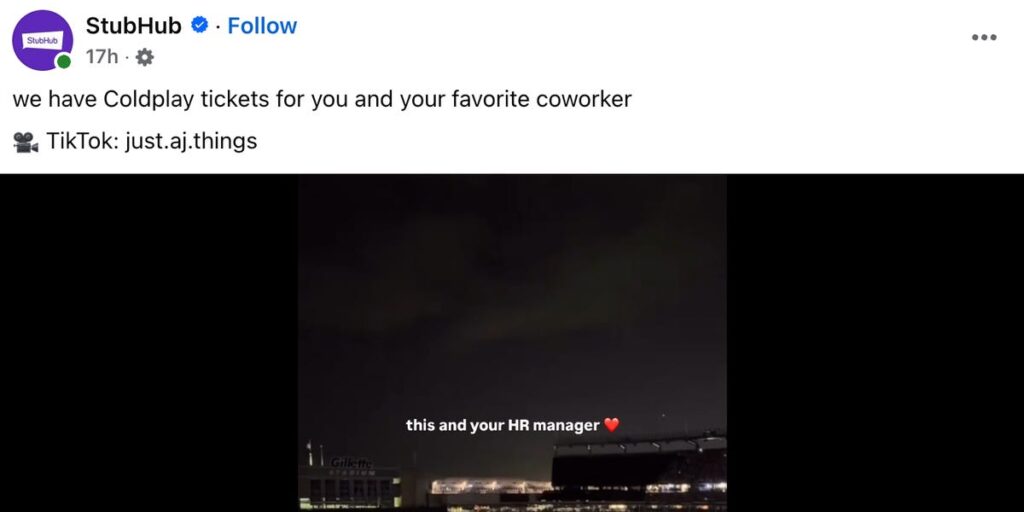ColdplayGate has emerged as the latest marketing free-for-all.
Tesla, Netflix, StubHub, and the Seattle Mariners are among a growing number of brands that have quickly seized on the viral internet video, in which two people who appear to be a tech CEO and his company’s head of HR were filmed embracing on a “kiss cam” at a Coldplay concert before quickly untangling and ducking out of frame.
The companies’ official accounts have posted on social media poking fun at the duo, who Coldplay front man Chris Martin and much of the internet speculated could be having an affair.
“Posting a pic of you enjoying your loaner Tesla while your own one is in service is the equivalent of taking it to a Coldplay concert,” reads a post from the company on its X account. “Your car will know.”
Posting a pic of you enjoying your loaner Tesla while your own one is in service is the equivalent of taking it to a Coldplay concert
Your car will know.
— Tesla (@Tesla) July 18, 2025
“We have Coldplay tickets for you and your favorite coworker,” StubHub wrote on Facebook.
Such cheeky social-media reactions are brands’ way of exploiting the “attention economy” to stay relevant at a time when it isn’t as easy to break through the noise with traditional advertising, Boston College communications professor Michael Serazio told Business Insider.
“It’s not only your friends and influencers and creators hopping in with jokes and memes,” he said. “It’s brands wanting to get into that space as well and come across as edgy and cool.”
Whereas a decade ago brands were often reserved with their online messaging, today they perceive it less risky to weigh in on current events, with the exception of geopolitical matters like the wars in Ukraine and the Middle East, Serazio added. Besides, he doesn’t expect people’s interest in ColdplayGate to last long anyway.
“This falls under the heading of internet ephemera,” he said.
Still, it can be wise for brands to take some caution with their online marketing. Earlier this year, Duolingo did just that when it staged the death of its owl mascot in all of its markets except Japan.
“It turns out that in Japan, joking about death is not as kosher,” Luis von Ahn, the company’s CEO, said on an earnings call at the time.
In the case of ColdplayGate, though, brands can feel relatively safe to chime in, said Brooke Erin Duffy, an associate professor of communication at Cornell University who studies social-media culture.
“It doesn’t have the same moral tenet as something that would take brands into an unequivocal political space, especially at such a fragile political moment as we find ourselves in,” she said. “It’s not something that’s going to offend people for the most part.”
Read the full article here


